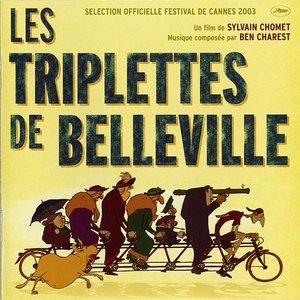Attila Marcel
Beatrice Bonifassi Lyrics
Jump to: Overall Meaning ↴
C'est un dur, un balaise.
Je vois la mort de près.
De dans ses yeux de braise.
il me fait ce que personne n'ose,
il couvre mon corps d'ecchymoses,
il m'assomme, il m'poche les yeux,
il m'fait la vie en bleu.
moi mon homme il me botte.
y'en a pas deux comme lui.
c'est pas de la gnognotte.
trois cent vingt livres et demies.
il me serre si fort dans ses bras.
que mon souffle repousse pas.
il est barbare, il est cruel.
mon Attila Marcel
j'irais retrouver sa lumière.
avec une droite de dieu le père.
et je reste sonnée jusqu'à Pâques.
au paradis des têtes à claques.
Moi mon homme c'est un vrai.
C'est un dur, un balaise.
Je vois la mort de près.
De dans ses yeux de braise.
il me fait ce que personne n'ose.
il couvre mon corps d'ecchymoses.
il m'assomme, il m'poche les yeux.
il m'fait la vie en bleu
From within his glowing eyes
I am that nobody dares
it covers my body with bruises
it bores me, it m'poche eyes
he s making life ine
The lyrics of Beatrice Bonifassi's song Attila Marcel describe a complicated relationship between the singer and her partner, who she describes as a tough, strong man. She acknowledges that he brings danger and fear into her life, as she is constantly confronted with death in his fiery gaze. However, despite this, she claims that he does things to her that no one else would dare, leaving her body covered in bruises. She seems to have a resigned acceptance of her partner's violent behavior, even finding some pleasure in the intensity of the relationship. She describes being squeezed so tightly by him that she struggles to breathe, and suggests that her partner is a barbarian who inflicts cruelty upon her.
The lyrics of this song are intriguing because they seem to hint at a complex and potentially abusive relationship. Some interpret the song as a critique of toxic masculinity, with the singer subverting traditional gender roles and claiming power in a relationship that might otherwise be defined by male dominance. Others see the song as reinforcing harmful stereotypes or romanticizing abusive relationships. Ultimately, the meaning of the song is open to interpretation, and will likely vary depending on the individual listener's own experiences and perspectives.
Contributed by Dylan H. Suggest a correction in the comments below.
